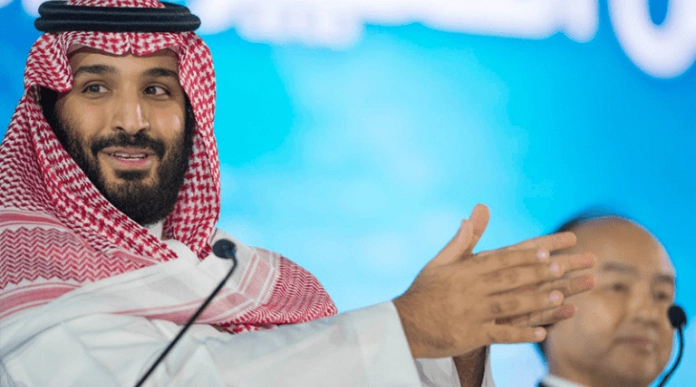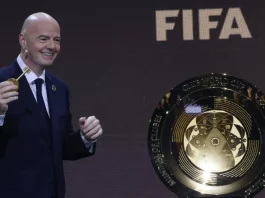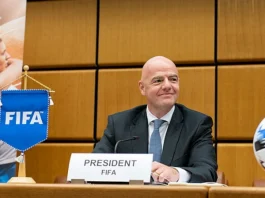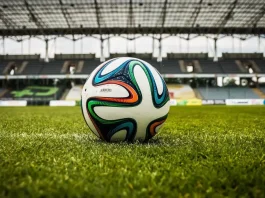In the last couple of years, Saudi Arabia has made a big bid to host international global events such as the FIFA World Cup. Now, the latest announcement that Saudi Arabia will be hosting the 2034 World Cup is controversial. While some see it as an opportunity for a Middle Eastern country to show progress and promote tourism, others consider Saudi Arabia’s governance as not under the ideas of this year’s FIFA
Lack of Democratic Governance and FIFA’s Values
Considering the sport is owned by FIFA as the global administrative authority, it claims to uphold solidarity among cultures and nations through its promotion of equality, inclusiveness, and unity. These are aspects of value enshrined in the mission of bringing together people from different backgrounds and transcending political boundaries. The monarchical system of Saudi Arabia raises suspicion about the consistency of its governing style with such values. Saudi Arabia scores just 7 out of 100 in terms of political rights and civil liberties, reflecting limited freedoms compared to democratic countries.
Saudi Arabia is a monarchy. The country holds a centralized form of government, where all the powers are concentrated in the hands of the king and the ruling family. Citizens in Saudi Arabia have no democratic rights to elect national leaders or influence policies. Such a structure may limit freedom of expression, political participation, and even the ability of citizens to voice concerns.
Human Rights Issues and Absolute Monarchy
Much of Saudi Arabia’s legislative and judicial processes are dominated by the monarchy, and laws and regulations are often implemented in ways that encroach upon human rights. People cannot speak out publicly against the government, while penalties for dissent are very harsh. Such practices have attracted international attention to the nation.
Human rights violations also involve gender and labor rights. Although Saudi Arabia has improved significantly on various issues regarding women’s rights, such as driving and entering the workforce, gender inequality continues to be a significant issue. For instance, under the male guardianship rules, women are not allowed to live alone, enjoy relative freedom, and have more choices in many areas. Without Borders, Saudi Arabia ranks 170 out of 180 countries, highlighting significant restrictions on media freedom and expression.
Freedom of Media and Information Control
Another fundamental principle of democratic societies is freedom of the press, which forms the cornerstone for transparency and accountability. The opposite prevails in Saudi Arabia, where freedom of expression is very limited, and the media and online platforms are kept under very tight control. The lack of free media raises serious questions on the possibility of neutral reporting by journalists on the World Cup and the experience of the visitors and participants in the country. The journalists in Saudi Arabia do not have much freedom as far as reporting is concerned. They are usually restricted from reporting about certain topics and will not give comments that could become harmful to the government or the royal family.
Curbing Freedom of Expression
A non-democratic monarchical government often restrains freedom of speech, which can involve sportsmen, spectators, and media persons. Saudi Arabia has laws that limit how one may be allowed to criticize the government or the monarchy publicly; this may have a bearing on the climate in which the World Cup is held. Players and audience members will be silenced on matters that they care about, as anything said that might be perceived as anti-government or culturally destructive can be punished.
Athletes and spectators have been given a forum to raise social issues in the World Cup- previous ones have used the international media stage for pleas regarding racial parity and gay rights. However, an expression of solidarity with this cause in Saudi Arabia will not be tolerated as it does not permit LGBTQ+ rights and the right to a peaceful assembly according to Saudi law.
International Perception toward the World Cup
It may also affect perceptions of FIFA and the tournament itself internationally. The decision by FIFA to host this World Cup in a non-democratic country could be viewed as an endorsement or, at least as a tolerance of the Saudi political system. Saudi Arabia has approximately 13 million migrant workers, many of whom face limited labor rights and difficult working conditions, an ongoing concern for labor rights organizations worldwide.
Here lies the danger: the FIFA brand may be sullied by this decision since the fans and activists question if FIFA prioritizes profits over principle. But growing awareness of human rights across the globe, not least now that social media have filled every corner of our globe, means that any tacit backing to a regime that doesn’t share the freedoms most people assume and desire
Options beyond Saudi Arabia as a Host Country
On the grounds discussed above, there is possibly better provision for hosting the 2034 World Cup. A country with democratic governance most probably retains values identical to those of FIFA: this includes being open and more inclusive, having regard for human rights, and avowing freedom of speech. Saudi Arabia still ranks 127 out of 146 countries in the World Economic Forum’s 2023 Global Gender Gap Report, underscoring ongoing gender equality challenges.
Using another hosting country with a relatively less close political system may also represent that FIFA is serious about what it says. This way, controversies may be avoided over its being held in Saudi Arabia, the alternative countries may be those of solid and known credentials with their records on human rights as well as democratic governance.
Of course, the nation could see this as the ideal situation whereby it can advertise its diverse cultural heritage besides showing tremendous and enviable infrastructural improvements while addressing numerous valid concerns In the final analysis, it is also FIFA’s responsibility to ensure that all its tournaments reflect its very principles. Football is perhaps the most universal sport in the world today.




